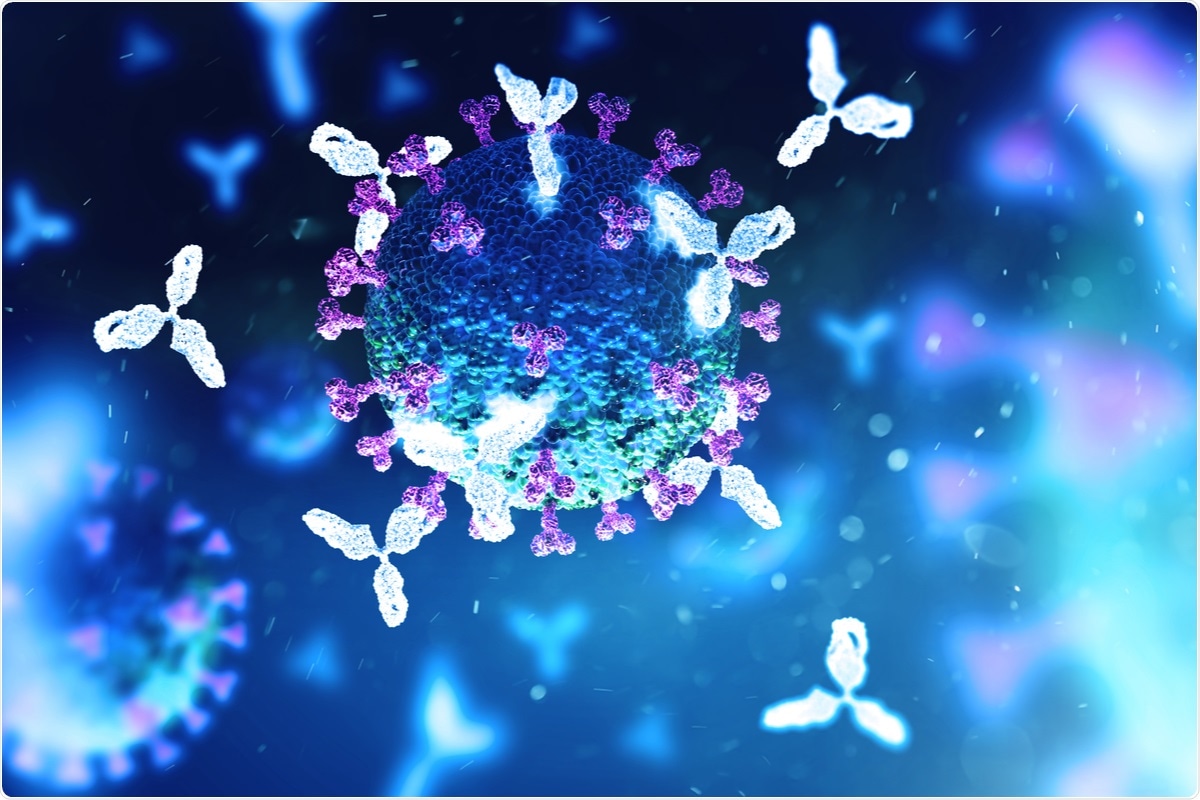In a report currently available on the bioRxiv* preprint server, scientists from the USA have demonstrated that immunity induced by mRNA-based coronavirus disease 2019 (COVID-19) vaccines in previously severe acute respiratory syndrome coronavirus 2 (SARS-CoV-2)-infected people has the highest robustness and durability with cross-reactivity against different viral variants.
 Study: Differential antibody dynamics to SARS-CoV-2 infection and vaccination. Image Credit: Andrii Vodolazhskyi/ Shutterstock
Study: Differential antibody dynamics to SARS-CoV-2 infection and vaccination. Image Credit: Andrii Vodolazhskyi/ Shutterstock
Background
The mRNA-based COVID-19 vaccines developed by Pfizer/BioNTech and Moderna have shown more than 90% efficacy in preventing severe disease. These vaccines contain spike protein of the original Wuhan strain of SARS-CoV-2. Thus, there remains a risk of attenuated vaccine efficacy against newly emerging variants with mutated spike proteins. Moreover, the global appearance of vaccine-breakthrough infections further questions the durability of vaccine efficacy in real-world situations. Thus, it is important to identify factors responsible for a robust and durable humoral immunity to gain maximum benefits from vaccination.
In the current study, the scientists have characterized the robustness, durability, and cross-reactivity of antibody response induced by natural SARS-CoV-2 infection and mRNA-based COVID-19 vaccination. Moreover, they have tested the antibody dynamics in vaccinated people who were previously infected with SARS-CoV-2.
A preprint version of the study is available on the bioRxiv* server while the article undergoes peer review.
Immunity induced by infection and vaccination
To understand the impact of prior infection on vaccination, the scientists determined the dynamics of anti-spike and anti-receptor binding domain (RBD) IgG antibodies in three groups of individuals: 1) COVID-19 recovered individuals without vaccination; 2) COVID-19 recovered individuals with vaccination, and 3) vaccinated individuals without previous infection.
The findings revealed that the durability of antibody response was highest upon natural SARS-CoV-2 infection, with preservation of 60 to 80% of peak antibody levels for up to 220 days post-symptom onset. In contrast, the highest magnitude of antibody response was observed in COVID-19 recovered individuals who had received the first vaccine dose. Compared to COVID-19 recovered individuals, vaccinated individuals with or without vaccination showed a relatively higher peak antibody level. In fully vaccinated SARS-CoV-2 naïve individuals, the antibody levels after 134 days of second vaccination reduced to the levels observed in unvaccinated COVID-19 recovered individuals after 220 days of symptom onset.
Regarding cross-reactive neutralization, plasma samples derived from vaccinated individuals with previous infection showed the highest neutralization efficacy against a range of viral variants. In vaccinated SARS-CoV-2 naïve individuals, the cross-reactive neutralization levels after six months of second vaccination reduced to the level observed in previously infected, unvaccinated individuals after 220 days of symptom onset.
Cross-reactive immunity induced by infection and vaccination
Plasma samples collected from COVID-19 recovered individuals showed significantly higher neutralization against the gamma variant and lower neutralization against the delta variant after 220 days of symptom onset compared to that observed at the initial stage of infection. The lowest neutralization was observed against the beta variant.
Importantly, a significantly higher neutralization efficacy against all tested variants (alpha, beta, gamma, and delta) was observed in unvaccinated COVID-19 recovered individuals than in vaccinated SARS-CoV-2-naïve individuals. A comparable neutralization potency against the delta variant was observed in COVID-19 recovered individuals and first dose-vaccinated naïve individuals. However, a significant reduction in neutralization potency was observed after the second vaccine dose. This finding indicates that mRNA vaccine-induced cross-reactivity is lower than that induced by natural infection.
A series of experiments conducted to identify the factors responsible for a durable immune response indicated that a long-lasting humoral immunity is associated with high frequencies of spike-reactive memory B cells originated from prior exposure to seasonal human coronaviruses. These memory B cells showed higher levels of somatic hypermutation. Moreover, individuals with long-lasting immunity showed higher frequencies of overall memory B cells reactive to the spike S2 subunit, which is highly conserved across human coronaviruses.
Regarding cross-neutralization, a significantly high proportion of COVID-19 recovered individuals with long-lasting immunity showed cross-reactive neutralization against all tested variants after 220 days of symptom onset. Further analysis revealed that long-lasting cross-neutralization is associated with high levels of anti-spike and anti-RBD antibody levels.
Study significance
The study findings reveal that natural infection induces moderate-intensity immunity against SARS-CoV-2 and its variants that remain stable for a long period. In contrast, mRNA-based COVID-19 vaccine-induced immunity gradually declines with time, despite an early robust magnitude. Importantly, vaccines offer the highest level of protection against SARS-CoV-2 infection in COVID-19 recovered individuals.
*Important notice
bioRxiv publishes preliminary scientific reports that are not peer-reviewed and, therefore, should not be regarded as conclusive, guide clinical practice/health-related behavior, or treated as established information.
- Chen, Y. et al. (2021) "Differential antibody dynamics to SARS-CoV-2 infection and vaccination". bioRxiv. doi: 10.1101/2021.09.09.459504.
Posted in: Medical Science News | Medical Research News | Disease/Infection News
Tags: Antibodies, Antibody, Coronavirus, Coronavirus Disease COVID-19, Efficacy, Immune Response, immunity, Protein, Receptor, Respiratory, SARS, SARS-CoV-2, Severe Acute Respiratory, Severe Acute Respiratory Syndrome, Spike Protein, Syndrome, Vaccine

Written by
Dr. Sanchari Sinha Dutta
Dr. Sanchari Sinha Dutta is a science communicator who believes in spreading the power of science in every corner of the world. She has a Bachelor of Science (B.Sc.) degree and a Master's of Science (M.Sc.) in biology and human physiology. Following her Master's degree, Sanchari went on to study a Ph.D. in human physiology. She has authored more than 10 original research articles, all of which have been published in world renowned international journals.
Source: Read Full Article
